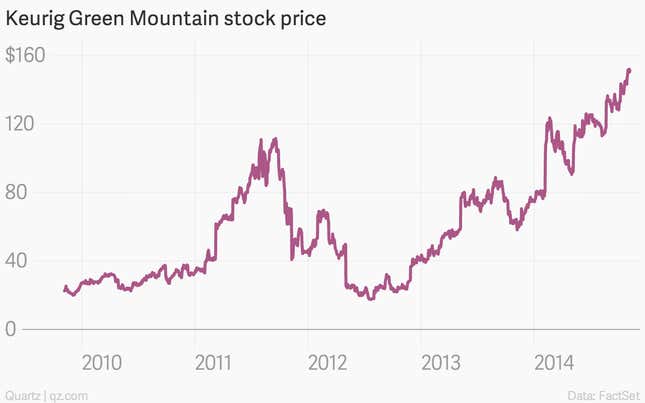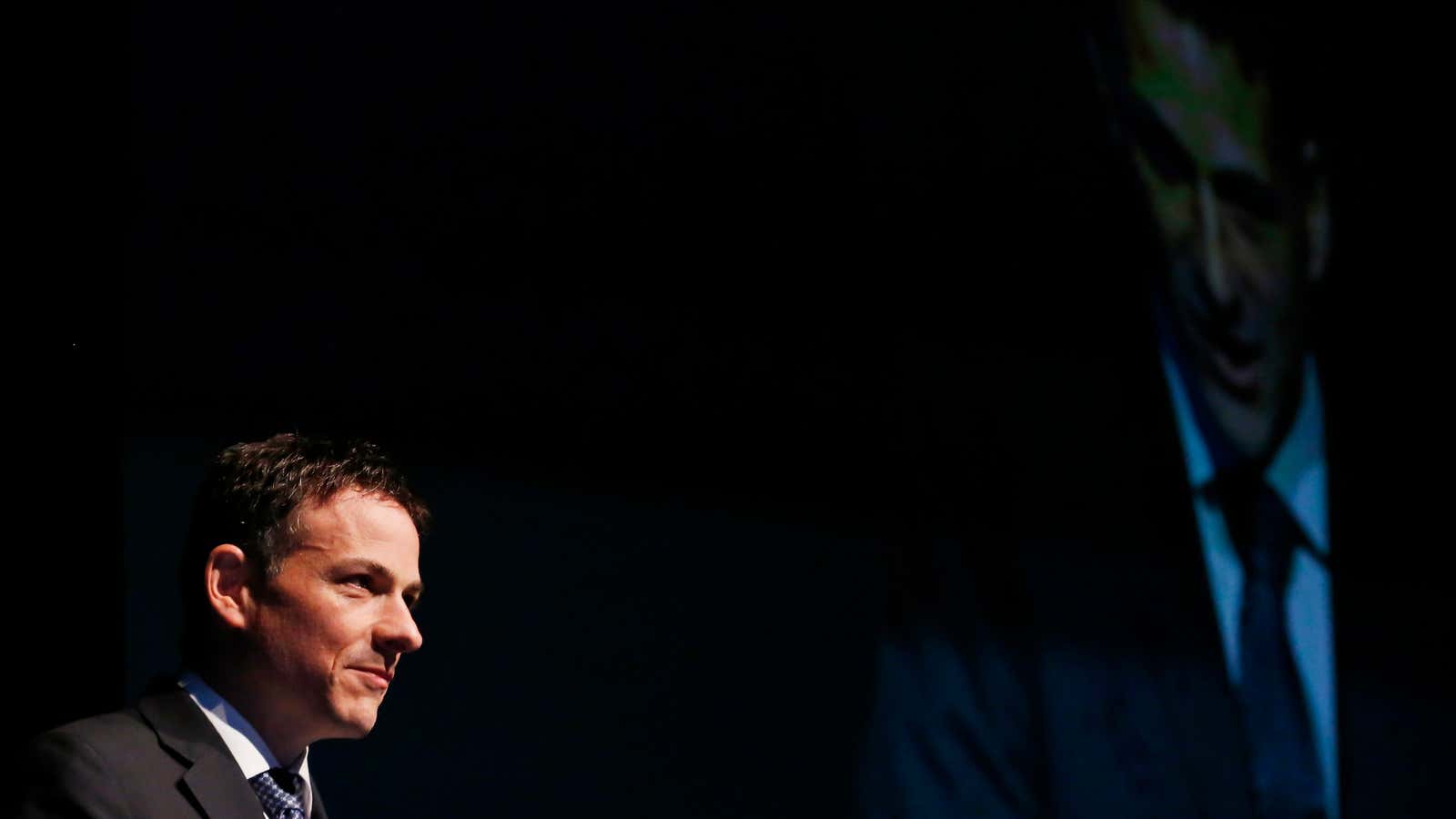At a 2011 conference where prominent hedge fund managers presented key investment ideas, Greenlight Capital’s David Einhorn raked Green Mountain Coffee Roasters, known for its K-Cup machines and pods, over the coals. It was a brutal presentation, more than 100 slides long, that argued the company was all but finished once its patent on K-Cup technology expired. It also alleged “aggressive” revenue recognition. The stock nosedived that day and again the next month on a disappointing quarter, and critics of the remarkably wasteful concept of single-serve coffee consumption rejoiced.
Three years later, the company (now called Keurig Green Mountain) is not just alive but thriving, and Einhorn now has admitted K-Cup defeat, having suffered a hefty loss on the investment. As recently as last fall, Einhorn added to the short position. It didn’t work out too well.

In a letter to investors, Einhorn said that as far as he’s concerned, his allegations of shady accounting remain unrefuted and accurate. But a probe by the US Securities and Exchange Commission closed after four years with no enforcement action.
Where Einhorn clearly went wrong was in predicting that the coffee company would find itself inundated by competition. Here’s an excerpt from his letter to investors:
The core of our thesis was that the company would lose its monopoly position upon expiration of the K-cup patents in 2012, and this has proven to be incorrect. After expiration, there was a raft of competition which, in the short term, took substantial share of the market.
In response, GMCR management developed a clever strategy to re-close the system and preserve its monopoly position. It announced (and recently launched) a new brewer. While GMCR claims that the next generation brewer is for the consumer’s benefit, the principal new feature is that it recognizes and refuses to brew coffee from competitors’ K-cups…
It’s hard to see why a consumer would choose the new brewer, which offers fewer coffee choices at higher prices. Recognizing that its customers are the large retailers rather than consumers, GMCR scared the retailers, advising them that selling incompatible K-cups would lead to user complaints. GMCR then convinced the retailers to pressure competitive brands to buy licences from GMCR, which they did in order to maintain retail distribution.
GMCR won back several private label accounts for the same reason. The result is that GMCR’s monopoly is largely restored and our core thesis is defeated. The company recently announced a 9% price increase on November 1. We congratulate the bulls.
Green Mountain has the biggest retail coffee market share in the United States according to sales value. Generic pod makers claim they’ll be able to crack the code of the new machine, but even at the height of the competition from generics, less than 10% of the K-cup market was off-license.
Meanwhile, the company has gotten a significant boost from Coca-Cola’s purchase of a 10% stake. It’s now working with Coke to release a cold-beverage machine, and it also has racked up a growing number of licensed partners, most recently Kraft.
But while Einhorn has thrown in the towel, another prominent short seller, Jim Chanos, is unimpressed with the cold-beverage strategy and is betting against the company.
